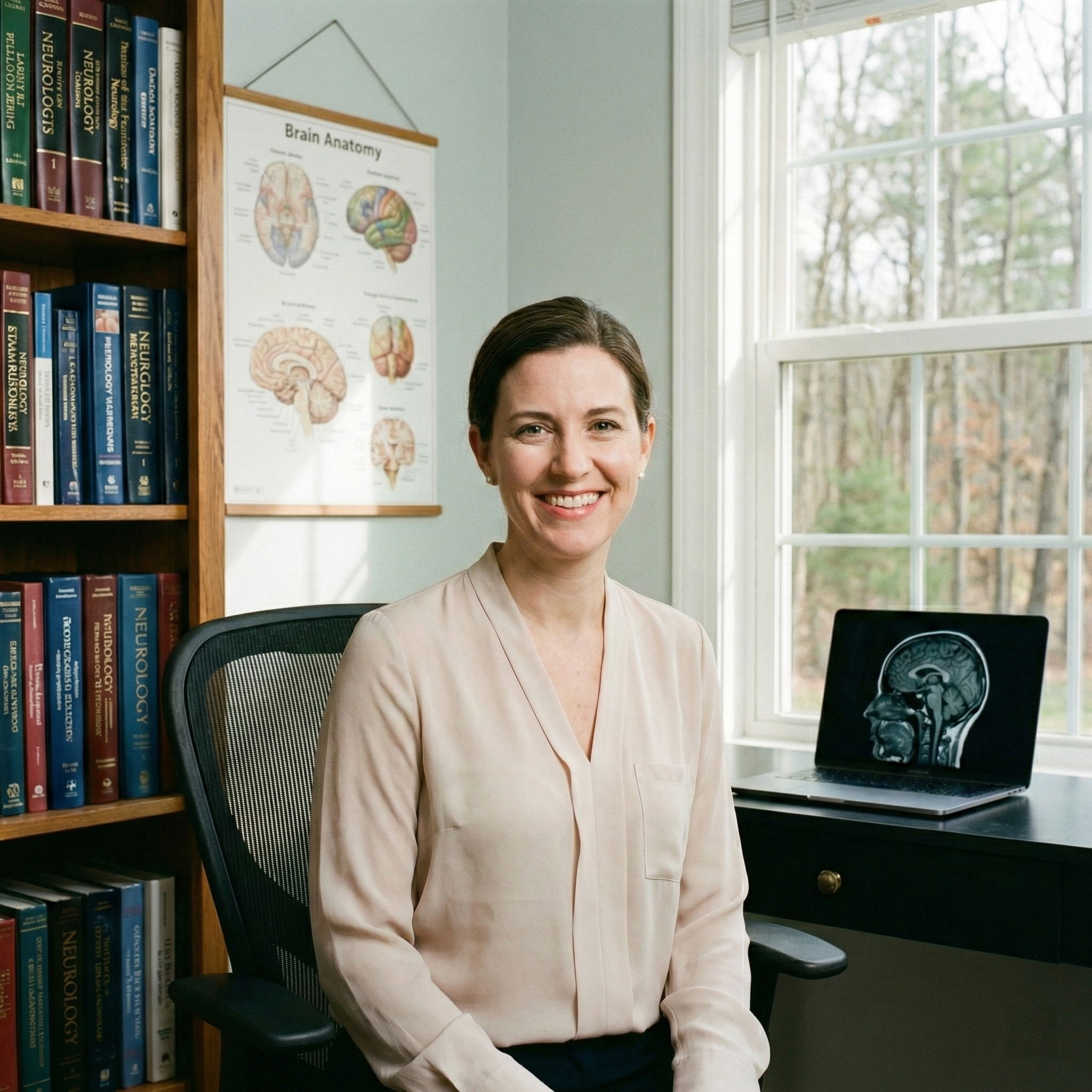
Patients with inoperable brain cancer often sleep a lot and feel very tired. This can make it hard to survive and live well. Waking up tired and finding it hard to stay awake is really tough.
At Liv Hospital, we care for patients with a focus on their needs first. We aim to not just extend life but to make every moment count for those with serious health issues. Brain tumors, like glioblastoma, are very aggressive and have a poor outlook.
We want to explain how brain cancer changes sleep patterns and what it means for survival. We look at the latest research and medical knowledge. By understanding how brain tumors affect sleep, we can help patients more during their treatment.
Key Takeaways
- Excessive sleep and fatigue are common symptoms in patients with advanced brain cancer.
- Understanding the relationship between brain tumors and sleep regulation is key to better patient outcomes.
- Liv Hospital is dedicated to top-notch healthcare with a patient-first approach.
- Managing sleep issues is vital for improving the quality of life for brain cancer patients.
- Our care philosophy is to extend life and make every moment better for our patients.
Understanding Brain Cancer: Types and Prevalence

It’s important to know about the different types of brain cancer. This knowledge helps doctors find better treatments and improve patient care. Brain cancer includes many types of tumors, each with its own traits and chances of recovery.
Common Types of Malignant Brain Tumors
Malignant brain tumors grow fast and can be deadly. The main types are glioblastoma, astrocytoma, and medulloblastoma. Glioblastoma is the most aggressive, making it hard to treat.
Glioblastoma grows quickly and doesn’t respond well to treatment. It’s a Grade IV tumor, showing it’s very dangerous.
Incidence and Survival Statistics
Brain cancer rates change based on age, gender, and where you live. The 5-year survival rate for glioblastoma is less than 5%. For all malignant brain tumors, it’s about 30%. These numbers show we need to keep working on better treatments.
Survival chances depend on the tumor type, age, and overall health. Knowing these details helps doctors create treatment plans that fit each patient.
Risk Factors and Causes
What causes brain cancer isn’t fully known. But we know some risks, like radiation, genetics, and viruses. Knowing these risks helps us find ways to prevent brain cancer.
Scientists are studying what causes brain cancer. Finding out can help us prevent and treat it better.
Brain Cancer Sleeping a Lot: The Connection Explained

The link between brain cancer and too much sleep is complex. It involves many physical and brain factors. Studies show that brain tumors can harm areas that control sleep, causing too much sleepiness.
Hypersomnia as a Primary Symptom
Hypersomnia, or too much daytime sleepiness, is a big problem for brain cancer patients. It means needing to sleep a lot or having trouble staying awake during the day. This makes everyday tasks hard and lowers their quality of life.
Differentiating Normal Fatigue from Cancer-Related Excessive Sleep
Feeling tired is common, but cancer-related sleepiness is different. It’s not just feeling tired; it’s a strong need to sleep that gets in the way of daily life. It’s important to tell normal fatigue from cancer-related sleepiness to give the right care and support.
Things like where the tumor is, how big it is, and how fast it grows can affect sleep. For example, tumors near the brainstem or hypothalamus can mess with sleep, causing too much sleepiness.
When Sleep Changes Signal Disease Progression
Changes in sleep can show if brain cancer is getting worse. As the tumor grows or spreads, it can mess with brain functions, including sleep. Watching these changes helps doctors adjust treatments and manage symptoms better.
It’s key to understand how brain cancer and too much sleep are connected to improve care. By spotting hypersomnia signs and what they mean, doctors can help patients live better lives.
Physiological Mechanisms Behind Excessive Sleep in Brain Cancer
Brain cancer and too much sleep are linked through many biological processes. Knowing how these work is key to finding better ways to help patients.
Direct Tumor Impact on Sleep-Regulating Brain Regions
Brain tumors can harm areas of the brain that control sleep. Tumors in places like the hypothalamus or brainstem can mess up sleep patterns. The tumor can also press on or invade brain tissue, changing how sleep neurons work.
Inflammatory Response and Cytokine Production
The body fights brain cancer with inflammation and cytokines. These molecules can make you feel tired and sleepy. High levels of cytokines are linked to longer sleep times and poorer sleep quality in cancer patients.
Cytokines and Sleep: Some cytokines, like TNF-alpha and IL-1, make you sleepy. In brain cancer patients, these cytokines are often made more, leading to too much sleep.
Disruption of Circadian Rhythms
Circadian rhythms help control when we sleep and wake. Brain cancer and its treatments can mess with these rhythms, causing too much sleepiness. This can happen because of the tumor itself or from treatments like surgery, radiation, or chemotherapy.
| Mechanism | Effect on Sleep |
|---|---|
| Direct Tumor Impact | Disrupts sleep-regulating brain areas |
| Inflammatory Response | Increases sleepiness through cytokine production |
| Circadian Rhythm Disruption | Alters normal sleep-wake cycles |
It’s important to understand these mechanisms to manage too much sleep in brain cancer patients. By tackling the root causes, doctors can create better treatments to help patients.
The Challenge of Inoperable Brain Tumors
Brain tumors that can’t be removed by surgery are a big challenge. They are called inoperable. This means they are in places that make surgery too risky.
Defining “Inoperable” Brain Cancer
Inoperable brain cancer is found in hard-to-reach spots in the brain. Inoperable brain tumors are not always hopeless. Other treatments can help manage the disease.
Reasons Why Some Tumors Cannot Be Surgically Removed
There are several reasons why some tumors can’t be removed. These include:
- Tumors in key brain areas, like those controlling speech or movement.
- Tumors deeply in the brain, making it hard to get to them.
- Multiple tumors or widespread disease, where removing one wouldn’t help much.
- Patients with serious health issues, making surgery too risky.
Life Expectancy with Inoperable Brain Tumors
The outlook for inoperable brain tumors varies a lot. It depends on the tumor type, grade, and the patient’s health. Generally, life expectancy with brain tumors that can’t be removed is shorter. But, new treatments have helped many patients live longer.
Dealing with an inoperable brain cancer prognosis can be tough. But, it’s key to work with doctors to find all treatment options. This way, we can improve life quality.
Treatment Options and Their Impact on Sleep
When treating brain tumors, it’s key to think about how treatments affect sleep. Chemotherapy, radiation, and surgery fight the disease but can also harm sleep. These side effects can make it hard to sleep well.
Standard Treatments for Malignant Brain Tumors
Standard treatments for brain tumors include chemotherapy, radiation, and surgery. Chemotherapy kills cancer cells with drugs. Radiation therapy uses beams to target tumors. Surgery aims to remove as much tumor as possible. Each treatment can have side effects that affect sleep.
How Treatments Contribute to Fatigue and Excessive Sleep
Treatments for brain cancer often cause fatigue. Chemotherapy-induced fatigue is common, making it hard to feel energized. Radiation therapy can also lead to fatigue, along with headaches and nausea. These can mess with sleep patterns.
Medication-Induced Drowsiness
Medications for brain cancer, like corticosteroids and anti-seizure drugs, can make you sleepy. These drugs are vital for managing symptoms but can affect sleep. Adjusting medications or adding other therapies can help improve sleep and quality of life.
The Bidirectional Relationship Between Sleep and Cancer Progression
The link between sleep patterns and cancer is complex and important. It shows a two-way relationship that affects how well patients do. Sleep problems can lead to bigger tumors and shorter lives.
How Sleep Disruption May Accelerate Tumor Growth
Sleep issues can start a chain of changes that help tumors grow. Studies have found that not sleeping well can cause:
- More inflammation, which helps cancer spread
- Changes in hormones that can feed tumors
- A weaker immune system, making it harder to fight cancer
Long-term sleep problems can make stress worse. A study in a cancer journal found that not sleeping well raises inflammation and weakens the immune system. This can hurt cancer treatment results.
The Role of Sleep in Immune Function and Cancer Fighting
Sleep is key for a strong immune system, which fights cancer. During sleep, the body:
- Makes cytokines to fight off infections and inflammation
- Activates immune cells like natural killer cells and T-cells, important for fighting cancer
- Fixes and removes damaged cells, which can lower cancer risk
Good sleep helps the immune system work best. When sleep quality drops, the body’s cancer-fighting power weakens.
Research on Sleep Quality and Survival Outcomes
Many studies have looked at how sleep quality affects cancer survival. They all agree that bad sleep quality means shorter lives. Key findings include:
- Cancer patients with sleep problems live shorter lives
- Better sleep is linked to better treatment results and a better life quality
- Sleep’s effect on survival is mainly through its impact on the immune system and inflammation
As we learn more about sleep and cancer, it’s clear that fixing sleep issues is key for better care and longer lives.
Survival Rates and Prognostic Factors
The outlook for brain cancer patients depends on several key factors. These include the type of tumor and the patient’s overall health. It’s important for patients and caregivers to understand these factors. This helps them navigate the complexities of treatment and management.
Statistical Overview of Brain Cancer Survival
Brain cancer survival rates vary a lot. They depend on the type and stage of the disease. The overall 5-year survival rate for all brain cancers is about 36%.
But, this rate can be as low as 5% for glioblastoma, the most aggressive form. On the other hand, some low-grade tumors have much higher survival rates.
Survival rates are influenced by many factors. These include age at diagnosis, tumor grade, and how much of the tumor is removed. For example, younger patients with low-grade tumors often have better survival rates than older patients with high-grade tumors.
Can Brain Cancer Be Cured?
Whether brain cancer can be cured is complex. It depends on several factors. For some low-grade gliomas, complete surgical removal can lead to long-term survival or even cure.
But, for more aggressive types like glioblastoma, cure is less common. Treatment then focuses on prolonging life and improving quality of life.
Advances in treatments like surgery, radiation, and chemotherapy have improved outcomes for some. Ongoing research into targeted therapies and immunotherapies also holds promise for better treatments in the future.
Signs of End-Stage Brain Cancer
It’s important to recognize the signs of end-stage brain cancer. Symptoms include increased drowsiness, confusion, and difficulty with speech. Changes in personality are also common.
As the disease progresses, patients may experience headaches, nausea, and vomiting. These are due to increased intracranial pressure.
Supportive care becomes key in the final stages. It focuses on managing symptoms, providing pain relief, and ensuring comfort. Hospice care can offer valuable support to patients and families during this challenging time.
Managing Excessive Sleep and Improving Quality of Life
Managing too much sleep is key for brain cancer patients to live better lives. Feeling very sleepy can hurt not just the patient but also their family and caregivers. Knowing why it happens and finding ways to fix it can help patients feel better.
Medical Interventions for Sleep-Related Symptoms
Doctors have many ways to help with sleep problems in brain cancer patients. Medications like modafinil can help people stay awake. Doctors also look at the tumor size and where it is to find the cause. They work with patients to find the best mix of treatments.
Lifestyle Adjustments to Manage Fatigue
Changing how you live can help fight fatigue from brain cancer. Keeping a regular sleep schedule and making your bedroom comfy can help sleep better. Also, doing gentle exercises like yoga or short walks can help. Eating well and drinking plenty of water is also important for staying healthy.
Support Systems for Patients and Caregivers
Having a strong support system is vital for brain cancer patients and their caregivers. Support groups offer a place to share and get emotional support. Caregivers can get a break with respite care. Online help and counseling can also support both patients and caregivers through tough times.
Conclusion: Navigating Brain Cancer’s Complex Relationship with Sleep
It’s key to understand how brain cancer affects sleep. Studies show that bad sleep can help tumors grow. But good sleep can help patients live longer.
The body’s internal clock fights tumors. When this clock is off, tumors can grow and spread. This shows how important sleep is in fighting cancer.
Helping brain cancer patients sleep better is vital. Doctors can tackle sleep problems and improve patients’ lives. For more on sleep and cancer, check out the National Center for Biotechnology Information.
We need more research on brain cancer and sleep. We also need better support for patients and their families. This will help improve care and outcomes for those with brain cancer.
Can brain cancer cause excessive sleep?
Yes, brain cancer can lead to too much sleep. This happens because the tumor affects how the brain controls sleep. It can cause hypersomnia and fatigue.
What are the common types of malignant brain tumors?
Malignant brain tumors include glioblastoma, among others. Their incidence and survival rates depend on several factors.
How do brain tumors affect sleep-regulating mechanisms?
Brain tumors can harm sleep-regulating brain areas. They disrupt our natural sleep cycles and cause inflammation. This leads to too much sleepiness.
What is the significance of understanding the relationship between brain cancer and sleep?
Knowing how brain cancer affects sleep is key. It helps improve patient care. Sleep issues can impact disease progression and quality of life.
Can inoperable brain tumors be treated?
Inoperable brain tumors are tough to treat. But, there are other ways to manage the disease. These can improve patient outcomes.
How do treatments for malignant brain tumors affect sleep patterns?
Treatments for malignant brain tumors can make patients tired. Medications can cause drowsiness, leading to excessive sleep.
Is there a link between sleep disruption and cancer progression?
Research shows sleep disruption can speed up tumor growth. It’s vital to manage sleep issues in cancer patients.
Can brain cancer be cured?
Brain cancer curability varies. It depends on the type and stage of the disease. Some cases can be cured with treatment, while others may not.
What are the signs of end-stage brain cancer?
Signs of end-stage brain cancer include significant cognitive decline and increased sleepiness. Other neurological symptoms also indicate disease progression.
How can excessive sleep in brain cancer patients be managed?
Managing excessive sleep in brain cancer patients involves medical interventions and lifestyle adjustments. It also includes support systems for patients and caregivers.
Are brain tumors curable?
Brain tumor curability depends on the type, location, and stage. Some can be cured with surgery, radiation, or chemotherapy. Others are more challenging to treat.
How does brain cancer impact life expectancy?
Brain cancer can greatly reduce life expectancy. This is true, even more so for inoperable tumors or those in advanced stages.
What is the role of sleep in immune function and cancer fighting?
Sleep is vital for immune function. Disruptions to sleep can weaken the body’s ability to fight cancer.



































